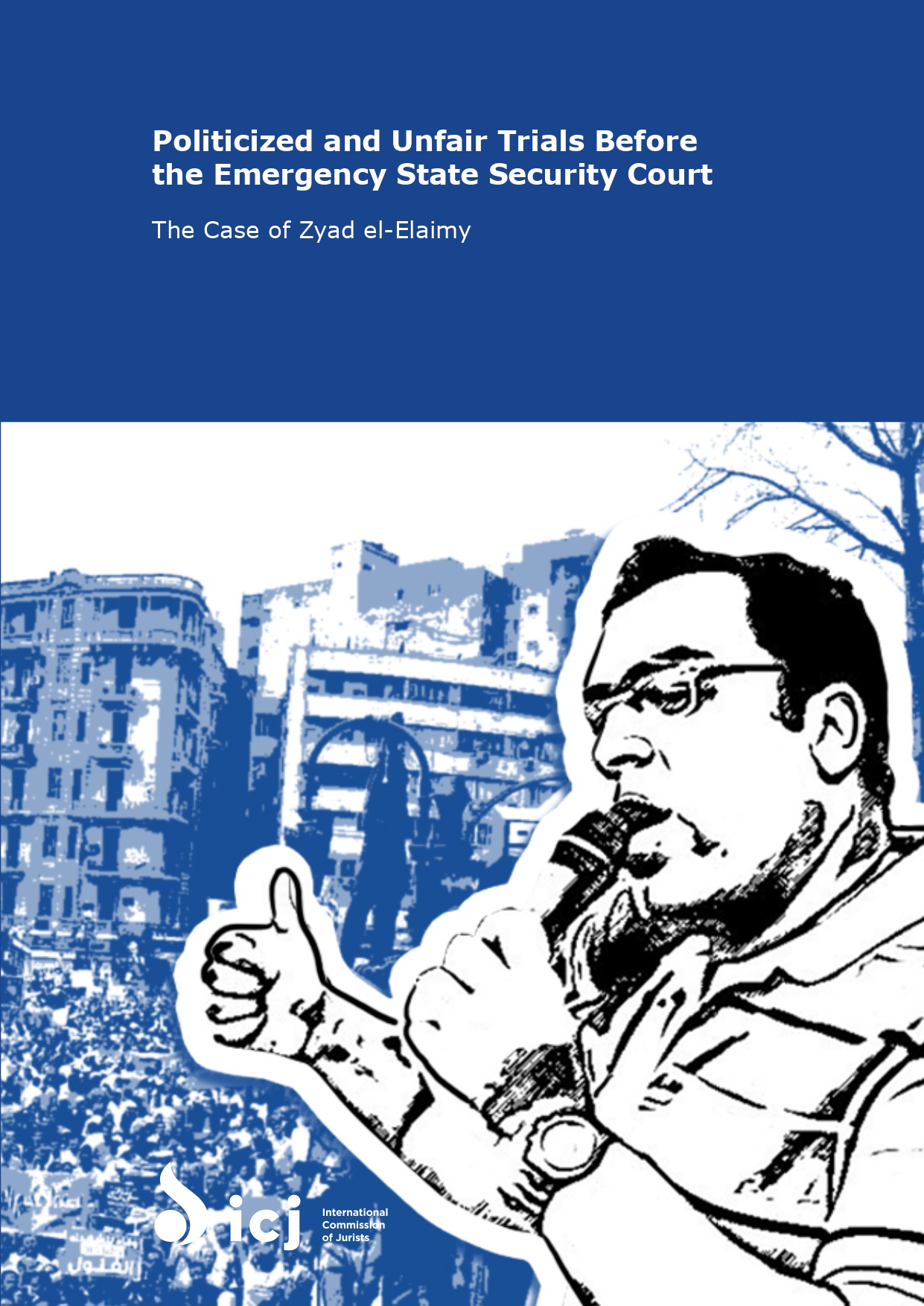Despite the formal lifting of the “state of emergency” on 25 October 2021, the Emergency State Security Court (ESSC) continues to be used by Egyptian authorities as a tool to crackdown on dissent and the legitimate exercise of human rights fundamental freedoms, the International Commission of Jurists and the Egyptian Commission on Rights and Freedoms (ECRF) said today.
On 17 November 2021, the Emergency State Security Court (ESSC) convicted Mr el-Elaimy of “spreading false news to undermine the State and national security”; the charges against him were based on the publication of three separate articles, including one denouncing the human rights violations being perpetrated in Egypt, on various social media websites. Upon conviction, the ESSC sentenced Mr el-Elaimy to five years in prison and a fine of 500 Egyptian Pounds (20 US Dollars).
Mr el-Elaimy was eventually released pursuant to a presidential pardon on 24 October 2022.
In a joint briefing published today, the ICJ and ECRF document how Mr el-Elaimy’s conviction and sentence were the culmination of criminal proceedings marred by a litany of gross human rights violations, including inhuman treatment in detention, arbitrary deprivation of liberty and other violations of fair trial rights, such as the right to a defence, the right to be presumed innocent, the right to be tried by an independent and impartial tribunal, among others.
Moreover, the ICJ and ECRF are concerned that the trial of Zyad el-Elaimy was a typical illustration of a pattern of politically motivated trials, initiated before the ESSC, solely for the purpose of suppressing any sign of dissent in the country.
Despite the formal end to the “state of emergency”, this modus operandi continues to prevail in Egypt: it involves a criminal process that is inherently unfair from start to finish. It begins with an arbitrary arrest, enforced disappearance, torture or other ill-treatment, continues with arbitrary and unlawful prolonged pre-trial detention, and ends with grossly unfair trials.
The ICJ and ECRF call on Egypt, among other things, to:
- repeal the Emergency Law provisions that violate international human rights laws and standards; and
- drop any existing cases before ESSC or transfer them to the ordinary courts.
Further recommendations to the Egyptian authorities are outlined at the end of the briefing paper.
Contact:
Said Benarbia, director of the ICJ’s Middle East and North Africa Programme, said.benarbia(at)icj(dot)org





